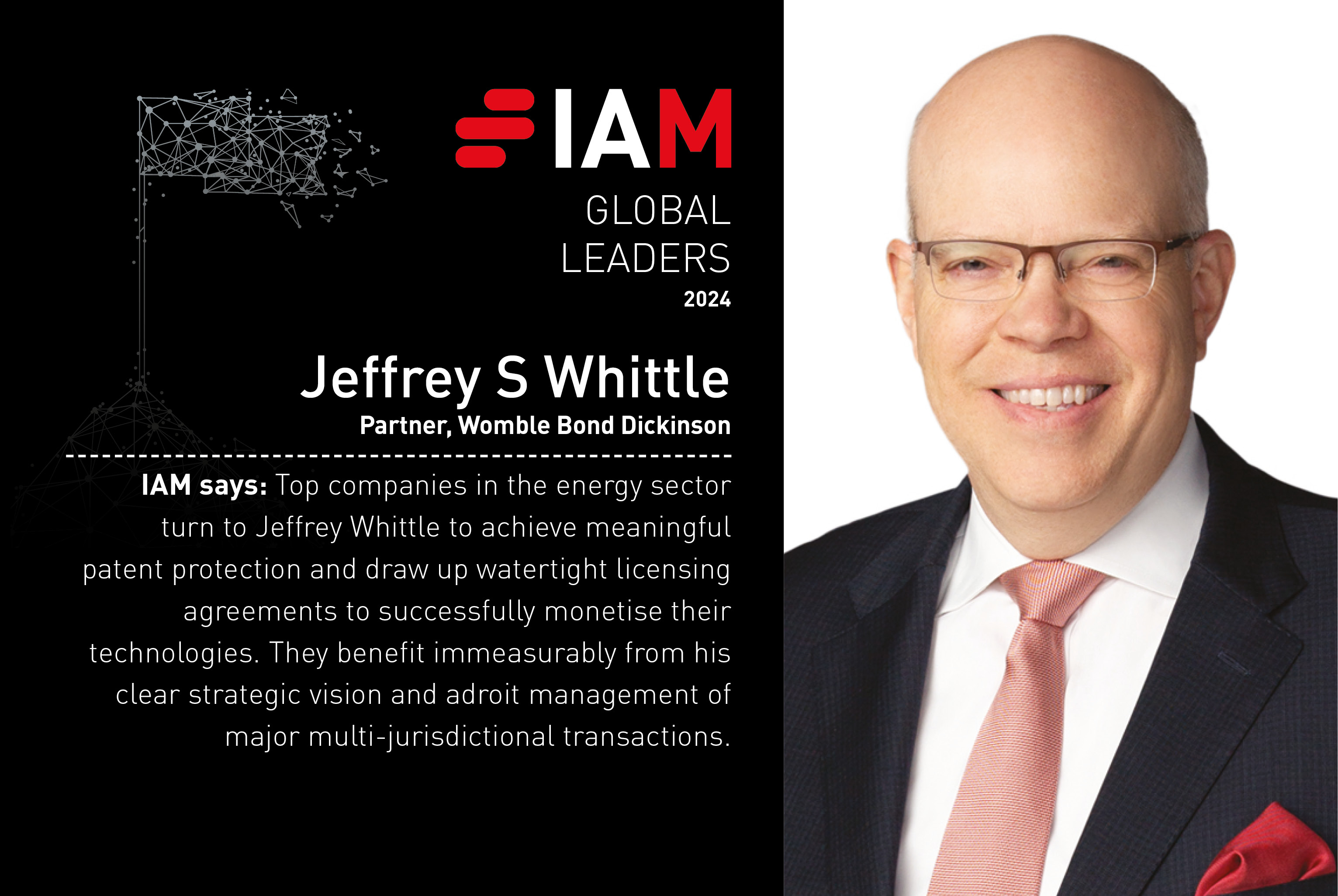Jeffrey S Whittle
 You are past president and chair of the Licensing Executives Society (LES) for the United States and Canada, current co-chair of the Americas committee for LES International and chair of the Certified Licence Professionals. How has your time in these associations contributed to your professional development?
You are past president and chair of the Licensing Executives Society (LES) for the United States and Canada, current co-chair of the Americas committee for LES International and chair of the Certified Licence Professionals. How has your time in these associations contributed to your professional development?
I highly recommend these professional societies to any attorneys or executives interested in technology or intellectual capital deals, transactions or licensing. These societies have strong training, educational and certification programmes that help young and experienced executives alike develop and practise skills that can last a lifetime and significantly help with their professional career. They also provide terrific forums for business networking and leadership development. I found them to be invaluable.
Have you had to adapt your clients’ portfolio strategies to manage economic headwinds (eg, pruning or allowing patents to lapse)? If so, what changes have you suggested and how are they working in practice?
Yes, at times, but only on a limited basis. Clients see real value in intellectual capital assets, but they do try to evaluate market risks when making IP portfolio decisions. The most prudent moves have been to evaluate commercial markets and limit filings, contracts or maintenance fee renewals only to those spaces where the particular technology likely will be successfully commercialised.
How do you stay abreast of the latest developments in the energy and high-tech industries in the United States and beyond?
I am an avid reader of news, articles and trade journals and I listen to podcasts. I also regularly attend and speak at various seminars, and these often inspire me to prepare and research topics well. In addition, I have the privilege of working with an outstanding team that helps facilitate and support me in these efforts to stay abreast of the latest developments.
Last year, you told IAM that you would like to see AI tools become more practical and efficient at a lower cost. Twelve months on, is this happening, and how is the development of such tools affecting your daily practice?
Yes, this is happening somewhat. However, during this time period, there has also been a deeper education provided for tool users so that they understand the pros and cons and associated risks of AI in general and the tools themselves. The expanded – and perhaps better – tool uses so far appear to be in searching capabilities, depth and speed, developing rough drafts of materials and speeding up repetitive tasks, among a few other areas. I look forward to more AI-tool progress over the next 12 months in these and many other legal and business areas.
How do you anticipate that the US licensing landscape will evolve over the next five years?
Just as intellectual capital knowledge and transactional training have become more widespread, I see licensing and a proper understanding of it likely to continue to spread into legal and business arenas at even deeper levels as attorneys and executives become much more knowledgeable and well trained. In turn, this will help the US licensing landscape look even more outward internationally to other industrialised and developing markets. The change will force US businesses to continue the internationalisation trend, but perhaps focus on various and different geographical markets for security, in order to reduce underlying risk and strengthen commercialisation opportunities.
Jeffrey S Whittle
Partner
[email protected]
Jeffrey Whittle provides more than 30 years of legal experience to clients in the energy and high-tech industries. He advises on strategic and complex technology cross-border transactions, licensing, IP portfolio protection and analysis, M&A, joint ventures and other contentious and transactional matters. Mr Whittle serves as head of Womble Bond Dickinson’s global energy and natural resources industry sector, head of the energy IP subsector and managing partner of the firm’s Houston office.